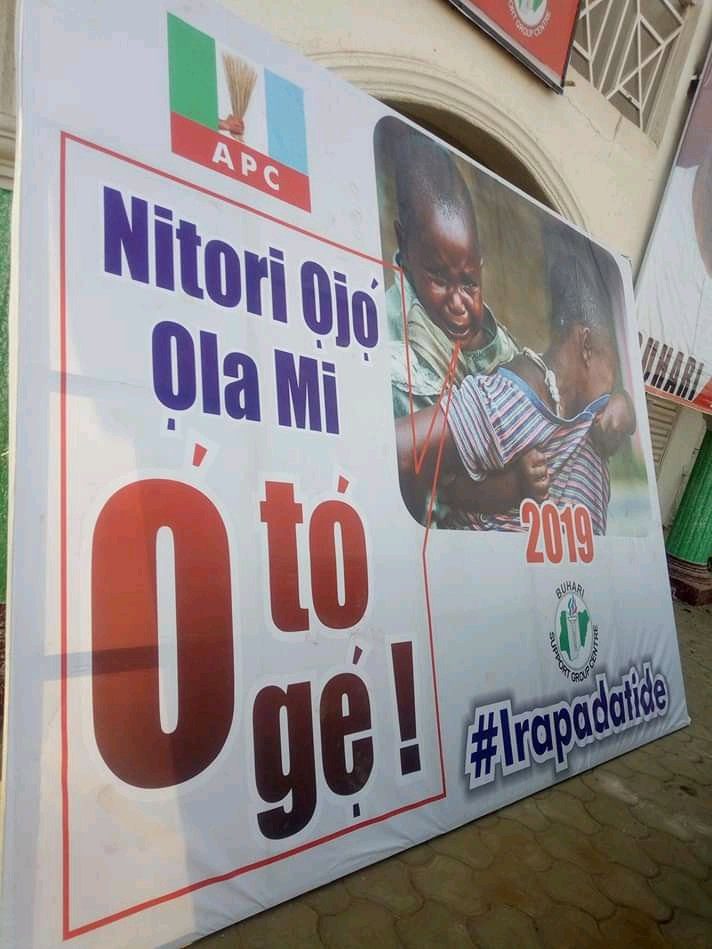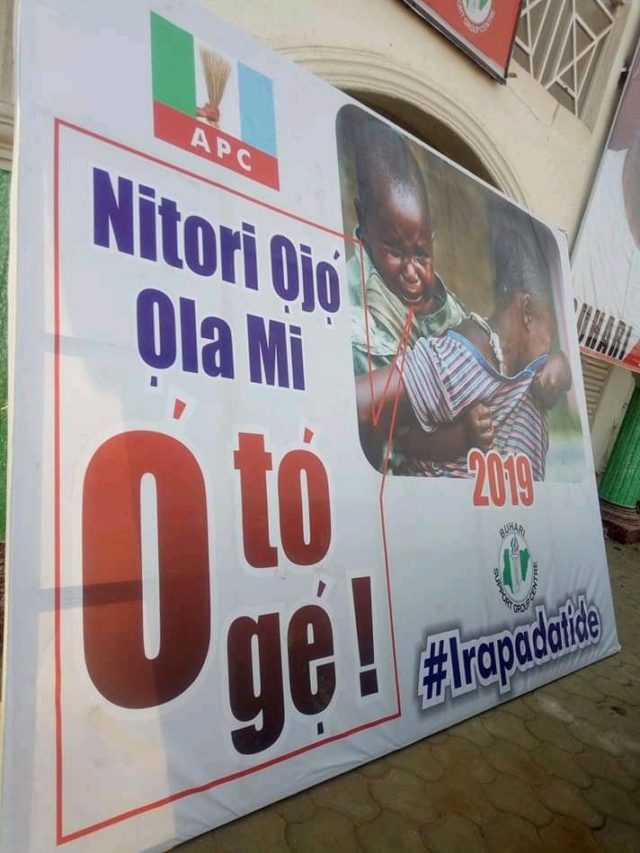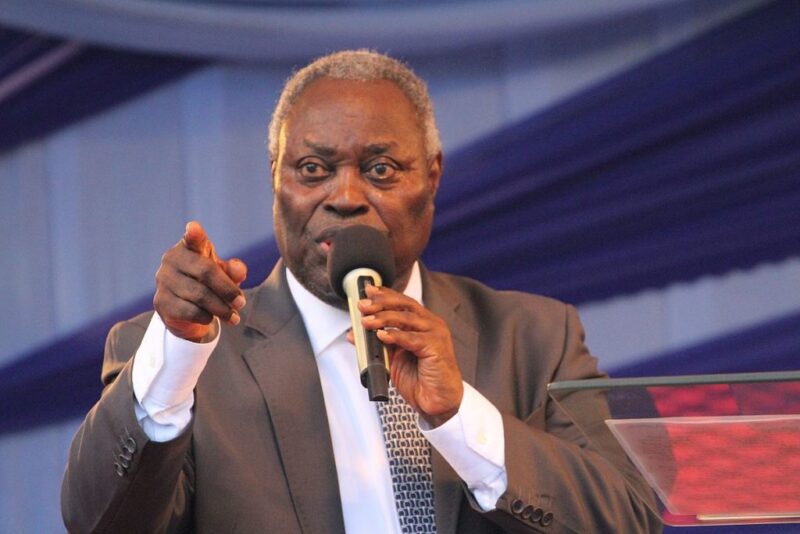Political Issues
After ‘O To Ge’: APC, Abdul-Razaq And Burdens Of Transformation -By Omotayo Suleiman

Ululations are in order.
Never has the routing of tyranny been so comprehensive, so complete, so deep down to its very roots. For all Kwara patriots, the myth of the oppressor’s invincibility has been shattered once and for all. However, the bitter, bloodied marathon struggle that culminated in the ‘O To Ge’ victory long predated it. While the credit list of the revolution’s heroes is justifiably top heavy with stalwarts of the All Progressives Congress (APC) apparatchik, from Abuja to Kwara, inclusive of key protagonists within the Abdulrazaq inner caucus, an authentic heroes list is inconceivable without acknowledging the tenacity of age old anti-Saraki fighters. Long before the courageous decamping into APC of Iyiola Oyedepo (of the ‘light and darkness cannot co exist fame’), long before the singularly patriotic sheathing of the swords by Professor Oba AbdulRaheem, following the post-primary tensions, long before the indefatigable Bashir Bolarinwa brought his irrepressible energy and leadership that turned a heavily depleted post-Saraki APC operation in Kwara into a deadly revolutionary army, long before Dele Belgore’s amazing display of party loyalty, displayed in uncharacteristically prompt endorsement of the primary winner, there were stout-hearted renegades who fearlessly took the fight to the very gates of Saraki’s desecrated executive mansion. These lion-hearted and deification-worthy heroes of the people’s struggle waged a painfully lonely war but remained resolutely steadfast, while almost the entire Kwara populace stood petrified for years, wholly hypnotised under the spell of Bukola’s mythical insurmountability.
True marathon runners, these implacable foes of corruption

But, there is also a chorus of unsung heroes, whose humble estates are far removed from the rarified chambers of political stardom. Those will never be invited to Governor-elect Abdulrahman Abdulrazaq’s inaugurals nor received in audience by a grateful President Buhari. Nor might they hope for a paparazzi covered visit to their lowly abodes by Asiwaju Tinubu, Adams Oshiomole or Alhaji Lai Mohammed, indefatigable midwives of the Abdulrazaq miracle ascendancy. But true heroes are they of our people’s struggle.
Especially to be celebrated among these dogged fighters are the feisty clerics of the Ilorin Ummah, who, defying material inducements from a pagan, apostate oligarchy that masqueraded as authentic sons of Alfa Alimi, saw through what they serially and stridently decried as Saraki’s ‘haram’ stained attempts at mass emasculation of Ilorin’s globally acknowledged Islamic sanctity. In their staunch opposition to a life that was so blatantly sold out to avarice and rulership marked with such ungoldly abuse of public trust, these are the true jihadists, purveyors of the almighty’s eternal truths, upon whose famished faces all of the benevolence of heaven must be smiling today.
But now with APC’s and Alhaji Abdulrazaq’s dream victory comes new hope. For passionate advocates of sustainable development in Kwara, this new hope also calls for deep reflections concerning the aftermath of victory. As the ‘O To Ge’ caravan gets ready for city-wide victory dances, in the euphoria of a long anticipated triumph, the enormity of the tasks ahead and the deep leadership imperatives that come to the fore, must necessarily occupy the thoughts of key leaders. For when the wild jubilations have died down, there will remain, in all of its stark complexities, the herculean, and predictably, quite lonely leadership burden that this singularly historic liberator must bear from the second he is declared governor.
All key stakeholders must realise that in the very heart of the momentum that has propelled APC to victory also lies long pent-up mass frustration, freshly stoked anticipation and street level expectations that often constitute the seeds of quickly unraveling discontent, and retail level impatience.
While vanquished opponents seethe, baleful eyed, with envious rage therefore, there can be no policy inertia on the part of the new leader. As grueling as the campaign must have been on key stakeholders, there can be no luxury of long recuperation. In a state where the poverty level is only a peer or two away from the very bottom of the national rung; in a state where mass youth unemployment has precipitated a frightening security risk and crime rate index; in a state where GDP indicators have remained perennially abysmal, the new leaders must know that mass restiveness is a latent disturbing sibling of the current giddy embrace of the ‘O To Ge’ movement.
If this is the brutal truth, there is also a context in which, perhaps, in terms of managerial and entrepreneurial pedigree, no one is more ready to tackle Kwara’s hydraheaded challenges head on than Abdulrahman Abdulrazaq. The strategic tension will be how should the fortuitous leader of a people’s uprising such as this, transform from the back-slapping, eager to engage, soap box comrade of all and every self-declared ‘political chieftain’ into his historically defined role of a focused paradigm shifting leader. For while Governor Abdulrazaq must retain the charisma and the grass roots affinity that makes for a people’s governor on one hand, true paradigm shift, measurable in a tangibly transformative throughput, does demand that Kwara’s long awaited new leader must jettison street level analogue thinking and embrace radically disruptive fresh thinking.
While actionable insights must necessarily be drawn from the native
intelligence and empirical authority of the popular leaders, from state,
to local to ward levels, true portents of leadership greatness will
reside in Governor Abduleazaq’s ability to distil clinical truth from a
cacophony of often self-seeking prognosis. That arcane capacity to
navigate through a maze of interconnecting variables, isolating with
purpose and firmness, priorities and forceful actions that yield
expedited and visibly applaudable outcomes, is ordinarily the forte of
high success entrepreneurs and business captains of Abdulrazaq’s
pedigree.
However with the mediation of a political and governance culture in
which fidelity to the social contract is often painfully tenuous and
personal pecuniary considerations take disproportionate primacy in the
hearts of virtually every political associate, a leader who is truly
intent on transformative outcomes soon comes to the sobering realisation
that the truly catalytic implementation of flourishly declared
manifestos are often not birthed in collegial amity with babanriga
cladded career power mongers. Rather, true alchemy, as Governor
Abdulrazaq may have discovered in his entrepreneurial life journey, is
often ignited in a painfully lonely incubation furnace. That fiery fire
in the belly, a certain deeply recessed destiny call to service, to
history, to greatness, fueling a leader’s performance ambition with
irrepressible propulsion. Ask Asiwaju Bola Tinubu. Ask a certain
Muhammadu Buhari.
So, when the last professional congratulator has departed, having excitedly pumped the new gubernatorial hands amidst leering winks that say, ‘Forget me not, Excellency’, how should a governor who was carried shoulder high to Government House on mass hysteria and contagious adulation contend with an often misguided web of expectations? In a regime that must be significantly differentiated from its sleazy predecessor, how will the new leadership grapple with the all-together justified patronage demands of a huge army of volunteers and an endless sea of political jobbers, without whose irrepressible energies and unquantifiable personal and financial sacrifices, the “O To Ge” train might not have become so turbo charged? And, while meeting these legitimate yearnings of political operatives for appointive ‘dividends of democracy’, how does a governor with desperately urgent transformation accountabilities yet find the discernment, the leadership fortitude and the single-minded strategic focus to defy the often ignorant clamour of political debt collectors? Mustering clarity of thinking above the fray of political horse-trading, the new governor, while deploying tact, diplomacy and empathy, must yet employ rigorous science in putting the human capital asset base of the imminent transformation together.
While finding the administrative genius to not only keep but deepen the still fragile collaborations and goodwill of the disparate tendencies that propelled to victory, he must yet deftly confine populist decision-making to a harmless periphery of his governing matrix, while he focuses on optimally resourcing the incredibly complex task ahead with requisite talent. Post-Saraki, the task of turning Kwara around from the ashes of its hopefully now twilighting pre-history to a new model of administrative excellence, will require far more than dexterity in political court-jesting.
A rigorously thought through strategic and governance architecture, therefore, is imperative. Now, rigour does not necessarily mean tedium or inaccessibility. An actionable policy framework will be as accessible in thought and articulation, as it is holistic, as relatable as it’s integrative and crosscutting, as cognisant of long-term imperatives as it is pragmatic in terms of clarity on short-term, mass level exigencies. Such multi-dimensional thinking is hopefully well-suited to the leadership propensities of a man who has distinguished himself in the fiery furnace of Nigerian entrepreneurship.
A compassion driven regime of rigour will ensure that ‘high faluting’ policies (as we say in Nigeria), elaborately documented white elephant ideas that are not rooted in any pragmatic interrogation of Kwara’s extreme urgencies, are focusedly eschewed. With a heart for our State’s legions of hurting poor, only truly actionable programmes, thoughtfully articulated and possessing in their core a practicality that at once shifts paradigm and yet delivers tangible, palpable and scalable outcomes in a time frame that speaks to the dire urgencies, are required. These must immediately impact, especially, our intimidating mass of impoverished and utterly disillusioned youth.
Ditto for fiscal sustainability. In an emergent regime of shrinking federal allocation, the vagaries of our tragically mono-cultural fixation on hydrocarbons, being the least causative index, the challenge of revenue sustainability vis-à-vis the urgent imperative of redressing an appalling level of infrastructural and human development deficit will sit bang in the centre of hard fiscal decisions this governor will have to contend with. Jaded analogue solutioning will not cut it. The internally generated revenue (IGR) architecture has got to resist the seduction of old, shop-worn paradigms in which a severely impoverished population is hard tasked to swell the purse of a government in which they only have tenuous faith. An 85 per cent poverty level and near bottom of the pyramid GDP profile does not remotely appear to augur well for the enforcement of a task master tax regime. If the venerable Asiwaju Tinubu and his equally respected mentees and successors in the Lagos governor’s mansion have succeeded outstandingly in IGR generation, it is perhaps only because Asiwaju’s strategic acumen succeeded in waking the latent potentials of a long underexploited but nonetheless historically rooted commercial/industrial hub, an especially vantaged arrow head of Nigeria’s flirtation with neoliberal market economy.
But in contrast, a basically subsistent Kwara economy, steeped in prehistoric agronomic practices and other increasingly derogatory socio-economic determinants that have engendered vicious poverty is hardly the candidate for inspiring IGR projections, in the short to medium term. Yet, rigorous focus must be on enthroning market economy management dynamics. This in itself is not at all an advocacy for a hard ball Bretton Woods kind of policy prescriptions that treat the urgent need for social protection with disdain. Run with integrity, social interventions in themselves are not necessarily inimical to self-empowerment sustainability among the masses.
Agriculture, which one is happy to note, was constantly on the lips of candidate Abdulrazaq, remains singularly the actionable lever for mass lifting of our perennially unemployed youth. While Shonga scale behemoths should be avoided, government-owned agro enterprises cannot also be the way. A youth population that is tragically consumed in an opiods epidemic is not nearly sufficiently conscientised into the national project as to be accountable in a public enterprise context. The administration must design an out-of-the-box scheme that will not be smothered with an entitlement albatross. A well thought-out private ownership led agrarian revolution is feasible and can yet unleash the youth’s entrepreneurial energies, while combating the anti-farming mentality of a laissez-faire generation that has been completely swallowed up in the deceptive city-centric vanities of the Facebook age.
While the governance exigencies to confront this new governor are legion, one should perhaps also caution on key geo-strategic issues within the larger Kwara construct. Having gone around campaigning, perhaps no one is more acutely aware than the incoming governor of how several key geographies within the State have revealed yawning needs for infrastructural upscaling. The leadership call will be how does an administration with limited resources significantly impact those areas that are far removed from the state capital, while remaining mindful of the continued strategic salience of the Ilorin metropolis itself.
Ilorin must not, and cannot be abandoned while the administration grapples with impacting other key areas that have long suffered neglect over these many years. All geo political entities within the Kwara commonwealth have organic links to Ilorin. Indigenes of all local governments live in Ilorin. A robust deepening of Ilorin’s transformation into a sustainable modern city conducive to healthy and accelerated growth of a modern economy is thus to the benefit of all.
Altogether, for “O TO GE” leaders, the victory party cannot be a never ending street dance. There is an enormous amount of work to be done.
Omotayo Suleiman is a political economist and public policy. Email: suleiman.tayo@gmail.com; WhatsApp: +2348155570341



















